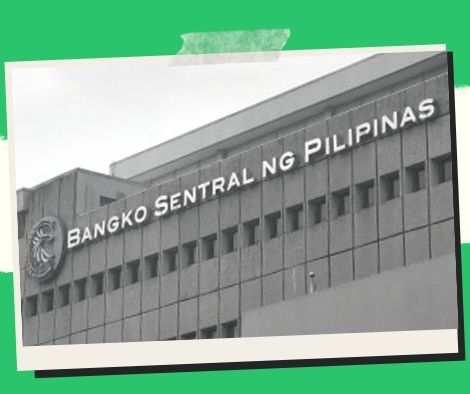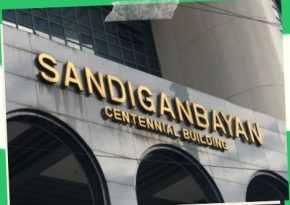
The BSP is putting together reforms to ensure the Philippine banking sector’s long-term viability.
Despite the epidemic, the Philippines’ financial system remains strong in the first half of 2021, and the Bangko Sentral ng Pilipinas (BSP) has planned various measures to ensure the sector’s long-term viability.
The central bank identified these reforms as the transfer of significant ownership in banks and non-bank financial institutions with quasi-banking licenses (QBs); climate change, environmental, and social risks; digital banking operations; open finance framework; fraud management; and customer due diligence, according to a report released on Tuesday.
“Moving forward, the BSP remains dedicated to strengthening its existing regulatory and supervisory frameworks to ensure that the banking sector, as the financial system’s core, continues to operate in a safe and sound way while also responding to the demands of the modern economy,” it said.
The central bank will impose prudential rules on the transfer of major ownership, according to the report, in accordance with the regulations under Section 25-A of the modified New Central Bank Act.
“The policy reform’s basic idea is to ensure that personnel with considerable influence or control over the bank’s/operations QB’s have integrity, financial capability, and appropriate knowledge of the business environment, operational model, and associated risks that may affect the institution,” it stated.
The BSP is set to complete Phase 2 of its regulations on a sustainable financial framework in relation to climate change policy.
According to the report, “this will provide detailed guidance with respect to the integration of climate change and other environmental and social risk in the enterprise-wide risk management of banks/NBQBs (non-bank financial institutions with quasi-banking functions), particularly in the areas of credit and operational risk.”
The sustainable finance policy framework was authorized by the BSP’s policy-making Monetary Board (MB) in March 2020, and it lays out expectations for the integration of sustainability principles into banks’ corporate, governance, and risk management frameworks.
“Supervised financial institutions are expected to deploy more robust systems to protect their data and systems and ensure delivery of uninterrupted services,” according to the research, citing the rise in cyberthreats.
“The BSP is working on an issuance that will expressly state requirements for supervised financial institutions’ fraud management systems.” The issuance “will strengthen industry alliances and coordination in the management of cyberthreats,” according to the statement.
According to the report, “the BSP will also issue guidance that will clarify the prudential treatment of restructured loans as well as provide covered banks/NBQBs with regulatory relief on the capital treatment of provisioning requirements under Philippine Financial Reporting Standards,” as a supplement to the central bank’s credit-related relief measures.
Despite the challenges created by the pandemic and other variables, the domestic financial system is solid and stable, according to the report.
The banking system’s total assets increased by 6.4 percent to PHP19.811 trillion at the end of June 2021, accounting for about 107.2 percent of the country’s annualized nominal gross domestic product, according to the report (GDP).
Deposits continue to make up the majority of the assets of financial institutions, followed by capital and bonds.
Universal and commercial banks (U/KBs), like in the past, control 92.5 percent of the system’s assets, totaling PHP18.328 trillion.
It was followed by assets of thrift banks (TBs), which accounted for 6% of the total, or PHP1.186 trillion, and assets of rural and cooperative banks (RCBs), which accounted for 1.5 percent of the total, or PHP296.5 billion.
In a statement, BSP Governor Benjamin Diokno noted that in the first half of the year, “the banking sector demonstrated continued expansion in assets and deposits and posted sufficient capital and liquidity buffers.”
“This enabled the banking system to serve the country’s funding needs,” he explained.
“During the pandemic, banks’ sustained delivery of financial products and services was bolstered by the acceleration of digital change,” he noted.
Save/Share this story with QR CODE
Disclaimer
This article is for informational purposes only and does not constitute endorsement of any specific technologies or methodologies and financial advice or endorsement of any specific products or services.
 Need to get in touch?
Need to get in touch?

We appreciate your reading. 
1.) 

Your DONATION will be used to fund and maintain NEXTGENDAY.com
Subscribers in the Philippines can make donations to mobile number 0917 906 3081, thru GCash.
3.) 
4.) 
AFFILIATE PARTNERS

World Class Nutritional Supplements - Buy Highest Quality Products, Purest Most Healthy Ingredients, Direct to your Door! Up to 90% OFF.
Join LiveGood Today - A company created to satisfy the world's most demanding leaders and entrepreneurs, with the best compensation plan today.

 Business, Finance & Technology
Business, Finance & Technology

 Business Technology, Finance Technology & Information Technology
Business Technology, Finance Technology & Information Technology





